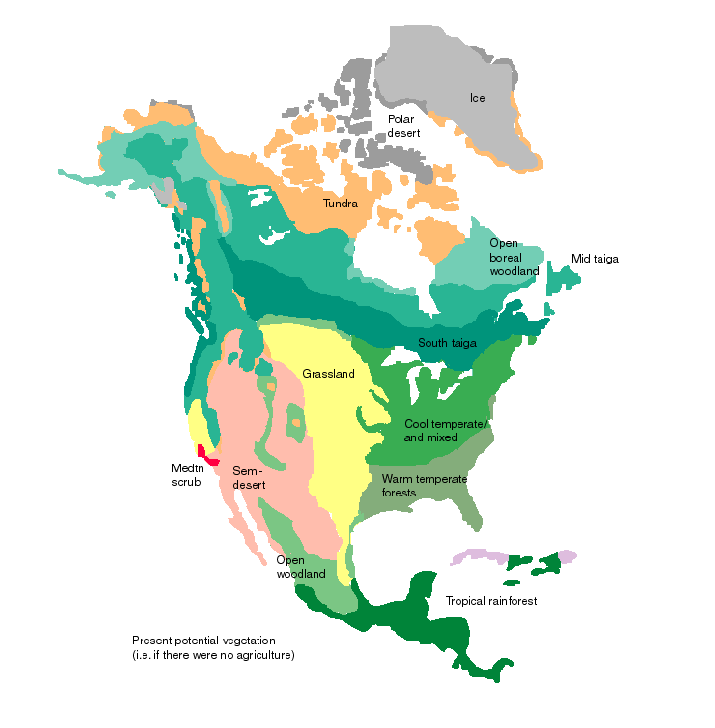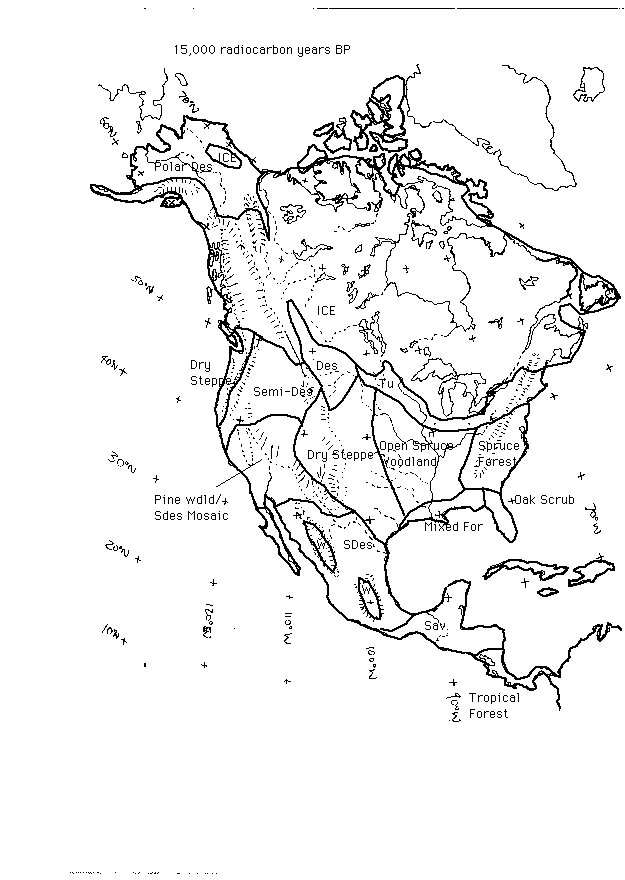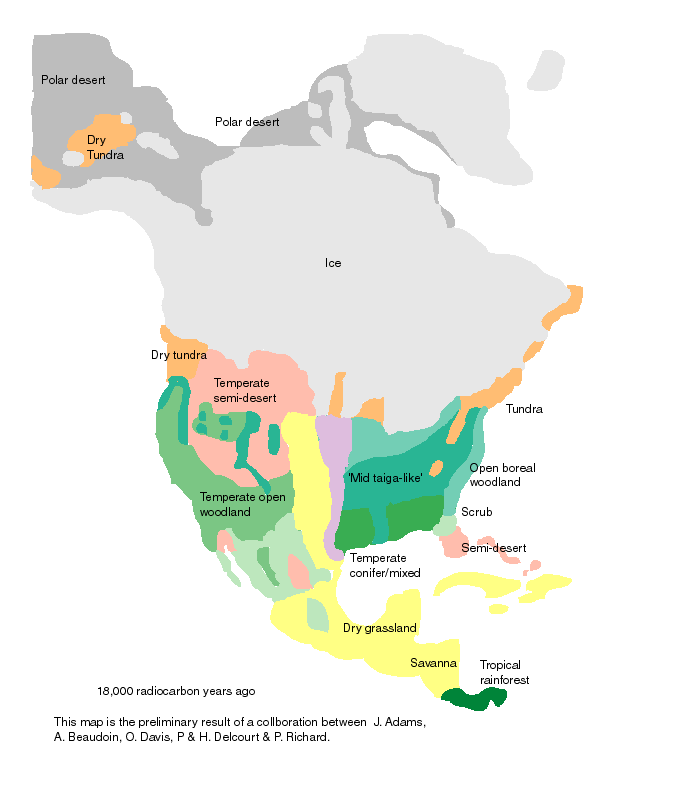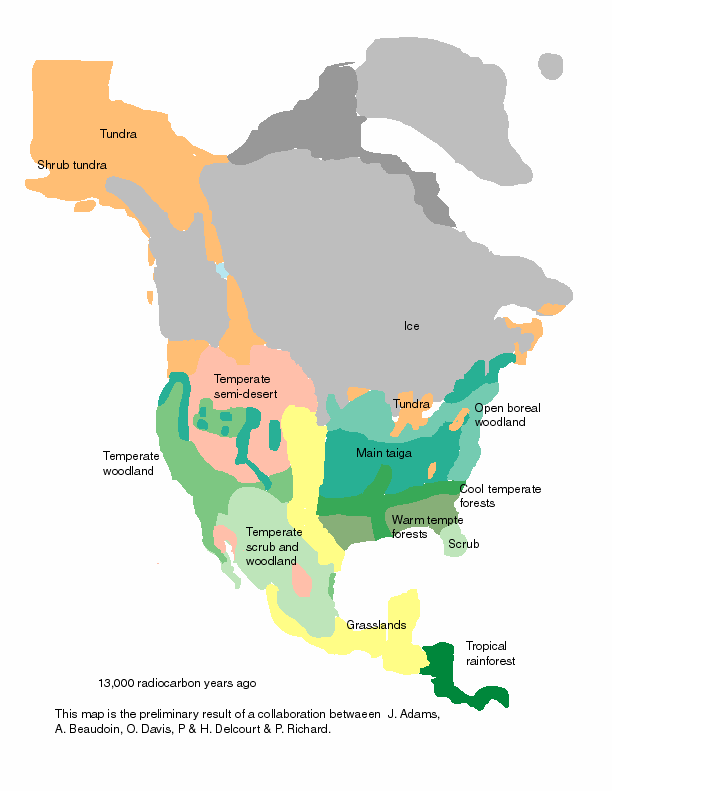Environment & Energy
Related: About this forumFor those keeping track of climate/weather, Anchorage just broke a record
for warmest October. The old record was established in 1936.
Here are just a few records broken in the last two years...
Most snow ... Winter 2011-2012
Longest snow season ... Winter 2012-2013
Hottest summer ... Summer 2013
There were also several daily temperature records set, with several days in a row above 80 degrees (unheard of here).
We have had no snow yet this year. Fall was late and lasted long. Last night, some parts of town had wind gusting to 105 mph.
It's hard telling what to expect this winter. ![]() but there's no climate change, right? Right?
but there's no climate change, right? Right?
pscot
(21,024 posts)and lay low. ![]()
roguevalley
(40,656 posts)I think I can feel earth's agony personally.
R. Daneel Olivaw
(12,606 posts)I'm waiting to wake up one morning and find it to be in the 80s.
Newsjock
(11,733 posts)Anchorage recorded an all-time high Monday with the thermometer hitting 51 degrees. That's two degrees up from the previous record of 49 degrees in 1959 and a whole 19 degrees above what the thermometer read this time last year, according to the National Weather Service.
In the Interior, Delta Junction recorded its warmest temperature ever for Oct. 28 at a steamy 62 degrees. This soars above the time the mercury topped out at 43 degrees in 1962.
Blue_In_AK
(46,436 posts)longship
(40,416 posts)I dread this winter. It is likely going to be very bad. When it snows I have to wait for a neighbor to plow me out. It's tough here in the Manistee National Forest in winter and I can no longer shovel deep snow.
I fear it's going to be a very cruel winter.
happyslug
(14,779 posts)North America today:

15-18,000 years ago:


13,000 years ago:

http://www.esd.ornl.gov/projects/qen/nercNORTHAMERICA.html
Just an observation that Alaska escaped the last ice age with minimal ice, it was either Polar Desert or tundra. The reason appears to have been it stayed warmer then the land East of Alaska and east of the Rocky mountains. Thus Alaska saw a DECREASE IN SNOW and an increase in Temperture as the ice age expanded, and the reverse when the ice age ended (Decrease in Tempertures and an increase in snow fall). The same with global warming, tempertures (espcially in winter) are expected to be LOWER then it is now, but for a much shorter time period. Snow fall will increase, till the Arctic is covered with ice (and this will takes at least a month every year) and then resume in the spring as the ice melts (the reason for this is simple, as the water changes to ice it releases a huge amount of energy that moves snow and colder temperatures south, but only as long as the Arctic has ice. Once frozen, no further movement of tempertures or snow. Then another increase in snow as the ice melts in the the spring (and drop in spring time tempertures for that melting of ice takes a lot of energy, energy then NOT available to warm up areas south of the Arctic).
Global warming also means shorter colder winters and more snow in fall and spring.
Blue_In_AK
(46,436 posts)I'm going to have to read up. ![]() i guess that explains all the mammoth tusks.
i guess that explains all the mammoth tusks.
So what do you think the current weirdness up here means? Will this be the new tropics?
happyslug
(14,779 posts)I live in Western Pennsylvania. My father use to say, if you had snow on the ground by the second week in December, you were in for a long cold winter, but if no snow by then, winter would be short and little snow,
Last year (and in the snow year of 2010), snow did NOT start to lay till Christmas and then stayed and stayed. It did not really warm up till May (through in 2010, most of the deep snows we had that year was gone by mid March).
The reason for the change is global warming. I expect winter for the next couple of years to hit about Christmas and last till the end of February. In late December and February I expect heavy snow, but almost no snow in mid January, Deep winter rarely produces heavy snow, heavy snows occur as winter begins and ends not when it is the coldest. Thus heavy snow Christmas through the first couple of Weeks of January, then nothing till February, when I expect to get hit again with snow.
Then in March you will start to warm up, by May I expect in most years to start to use my Air Conditioner, which use I expect to use till late September. Temperatures will start to fall about the First week of Autumn but take three months to get down to temperatures where snow will stay on the ground.
Thus for Western Pennsylvania a long hot summer (May through September) a short cool fall (October till Thanksgiving) and wet but snow-less early winter, Thanksgiving till Christmas. Then a heavy month of snow (Christmas till mid January). A cold and snow-less month (Mid January to February). A snowy February. A wet but warm March and April. Please notes these times are approximates.
I suspect a similar pattern for Alaska, your summer will be longer and hotter then it was 20 years ago and your first snow that stays on the ground will be latter then it was 20 years ago (and the last snow gone in Spring, melted long before it would have 20 years ago). Winter will be 1/2 as long as it was 30 years ago (but colder). Average Temperature will be higher, for the colder but shorter winter can NOT offset the warmer temperatures the rest of the year.
That is what most experts have been saying will happen with global warming. For something else to happen would require the Arctic NEVER to freeze (and thus STOp the movement of air, what we call "Wind" from the Arctic to the Equator and back that is the back bone of most weather movement in the temperate climate areas) OR the West Antarctic Ice Sheet to Collapse, thus opening up movement of materials from the Antarctic to the Pacific and Indian Ocean "Deserts".
Today, vast areas of the South Pacific and Indian Oceans are "Deserts" in that no algae grow they. You have sunlight, but the lack of trace materials needed by life to live prevents these areas from supporting Algae. Most of the trace material is believed to be absorbed by other form of life (mostly other algae) in parts of the Ocean closer to the other Continents. The Southern Ocean, the ocean the rotates around the Antarctic keeps all of the trace materials of that Continent close to that continent, thus the Pacific and Indian Ocean Deserts exist.
Plans have been proposed to open up these deserts by dumping trace material (mostly iron) into these areas so you have increase Algae, and with that Algae increase fixing of Carbon.
I bring this up for one of the big fears of Global Warming is the West Antarctic Ice Sheet (WAIS). The WAIS is called the Godzilla of Global Warming. WAIS being an ice sheet (An Ice Sheet is a sheet of ice grounded on land, an Ice Shelf is a sheet of ice floating on water) but one grounded BELOW sea level is inherently unstable and its believed to have collapses 120,000 years ago. If the WAIS should collapse, you would see a 20 foot increase in world wide sea level within a month as the WAIS cease being Ice Sheet and become Ice Shelves. The difference is Ice Sheet, being grounded on land, displaces very little water in the ocean for most of their weight is carried by the ground they are grounded on not the water lapping as their margins. If the WAIS becomes an Ice Shelf, it will immediately displace the amount of water in the Ice Sheet from the ocean, and that means a 15 to 20 feet increase in world wide sea level raise.
Worse, such an opening would open up the West Antarctic to the Atlantic and Pacific Oceans, permitting massive amount of trace materials into the Ocean Deserts mentioned above. about 120,000 years ago this appears to have happened. You had a 20 feet increase in world wide sea levels, then within 100 years an 80 foot DROP in sea levels as the first ice age started. The theory is that such a release of materials would lead to a massive increase in algae growth and fixing of carbon that we be in an ice age in 50 years as the new Algae withdraws the excess carbon from the air.
I bring this up, to show anything beyond a 10-20 period is guess work at best, and we have huge question marks even within that 10-20 year period.
More on the Madhouse century:
http://www.imaja.com/as/environment/can/journal/madhousecentury.html

http://www.motherjones.com/authors/julia-whitty?page=20
The West Antarctic Ice Sheet (WAIS) is to the left in the above map. It is the smaller of the two Antarctic Ice Sheet. The East Antarctic Ice Sheet (EAIS) is considered much more stable, for it is grounded ABOVE sea level and much more massive (About 70% of the worlds Fresh water is in the EAIS, just over 10% of the world's fresh water is in the WAIS, just under 10% of the world's fresh water is in the Greenland Ice Sheet, also grounded about sea level. The remaining fresh water is in the various lakes, rivers, glaciers and other fresh water sources in the world.
The WAIS is from the Ronne Ice Shelf to the Ross Ice Shelf. No one knows how stable is the WAIS. It may last another 100 years, or break up next March (The end of Summer in the Antarctic, when the ice shelf around the Ice Sheet are at their lowest amount of ice). If the WAIS breaks up all bets are off.
gopiscrap
(23,761 posts)Champion Jack
(5,378 posts)bravenak
(34,648 posts)I've been waiting for snow.
Blue_In_AK
(46,436 posts)I don't want to lose any more perennials.
bravenak
(34,648 posts)I have a black thumb and have murdered scores of plants.
Fuddnik
(8,846 posts)2-3 weeks later than usual.
Last year we had no frost or freeze. My tomatoes and peppers in the garden kept on producing through the winter, spring, and summer.
Judi Lynn
(160,530 posts)Gman
(24,780 posts)1936 was during the dust bowl days, a time in the lower 48 with no rain and hot temps. Someone slso referenced a 1959 record which was at the end of the famous 50's heat waves and drought.
I've been studying our climate for a few years now and it seems we're in a cycle for the last 10 years or so not unlike the 30's and the 50's. Except it's now being exasperated by global warming.
Left Coast2020
(2,397 posts)If you want to call 70's warm. Should have had some rain by now with at least a few inches of snow in Sierra's. Lakes are really low except for one on North side of I-80 (forgot name as friend hiked with group). But overall, no significant precip for an area that needs it. Mostly a snowpack to recharge the lakes would be beautiful.
Finally, whenever I get involved with this topic, I always seem to think about the pollution that drifts over from China for some odd reason. Can't possibly be the coal fired power plants they use causing this.
hatrack
(59,587 posts)USDA bumped us up a zone in the latest plant hardiness index, and it's easy to see why.
Judi Lynn
(160,530 posts)felix_numinous
(5,198 posts)--was the date I was told snow started in Anchorage in the 80s- which it did far as I can remember, like clockwork, the whole following decade I was up there...
What a beautiful state ![]()
Blue_In_AK
(46,436 posts)The first year I moved up here (1975) we had about a foot of snow on the ground by Halloween, and it was about -20. I remember because I took my 3-year-old daughter out trick or treating (for about 10 minutes) and she looked like the Michelin Man.
Today, my husband and I just got back from a 3-mile walk wearing only jeans and hoodies. The current temperature is 45. It's barely gone below freezing this fall, even at night.
felix_numinous
(5,198 posts)I used to swim in water that temp when I was acclimated to AK ![]() no kidding.
no kidding.
I hope the permafrost holds up in coming years, right?
Blue_In_AK
(46,436 posts)I lost a bunch of Shasta daisies this year because it got really cold last winter before we had good snow cover. Then this summer I lost one of my blue Himalayan poppies because it was too hot. They don't like it above 65, and we had days and days of 75-85 temps. The 80+ stuff was really bizarre. I can count on one hand probably the number of 80-degree days we had in Anchorage previously. Fairbanks, sure, but not here.
I mulched all my beds with about a foot of leaves this fall, just in case we don't get snow before the cold.